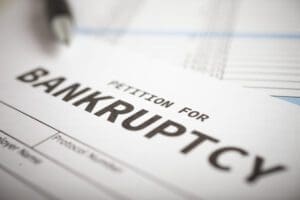As some of you may already be well aware, student loans are notoriously difficult to be absolved of through normal bankruptcy proceedings. That may all be changing soon as a little over a week the Biden Administration released new data on an initiative the White House developed last year to make it easier to discharge student loans in bankruptcy.
According to the data released by the Department of Education nearly 99% of all who requested a discharge of these loans based on hardship and inability to pay were approved for full or partial discharges. In a statement, a representative of the Biden Administration Vanita Gupta touted the success of the initiative saying “our efforts have made a real difference in borrowers’ lives by ensuring student-loan discharges are more accessible to eligible borrowers. We will continue working with our partners at the Department of Education to ensure the process continues to be a success.”
But is encouraging more people saddled with student debt to declare bankruptcy really something we should be doing? I would say not at all. There is a common phrase that “Bankruptcy is like a nuclear bomb. It destroys everything in its path.” I believe this to be 100% true.
While I’m sure the idea of filing some paperwork and having your debt wiped clean is very tempting, particularly for young people just starting out with little to no tangible assets to their name. However, the long-term financial harm that is done to someone who declares bankruptcy is not to be taken lightly.
Unfortunately, too many people today focus on instant gratification with little to no regard for the future impact their decisions will have on them. Which frankly, is how many find themselves buried in debt to begin with.
What are some of those ramifications of bankruptcy? The most obvious one is the damage it does to one’s credit. Lenders are far less likely to approve loans to someone who has defaulted on them in the past. For the minority that are still able to get a loan, the interest rates and the fees associated with them are usually drastically higher.
Loans are not the only challenge those who have declared bankruptcy face. Because many landlords and employers use a credit report as a way of evaluating a person’s character. Bankruptcies often impair a person’s ability to rent or find quality employment.
The stigma of declaring oneself bankrupt also has an emotional impact. Multiple studies have shown that those who go through bankruptcy experience increased levels of depression and anxiety. Relationships are often harmed by this process as well.
https://www.ncbi.nlm.nih.gov/pmc/articles/PMC5769037
Overall, the damage done by declaring bankruptcy cannot be understated. My advice to anyone contemplating such drastic actions is to consider alternatives. In the midst of the storm, I know it can feel like it is hopeless. That you are powerless to keep your financial ship afloat. But often you can. By developing a strategy that can include deferrals, restructuring, settlements and or course repayment it is possible to clean up your financial mess yourself.
Consult with your financial advisor if you have one. They should be willing and able to help you develop a strategy to tackle the debt you owe. For do-it-yourselfers, there are dozens, if not hundreds, of books on the subject. I personally recommend Dave Ramsey’s Total Money Makeover or Suze Orman’s 9 Steps to Financial Freedom. Both provide a clear roadmap to getting out of debt in easy-to-understand steps.
For most people it is possible to untangle yourself from the debt that is suffocating you. I’m not saying it’s easy, but when possible, making the necessary sacrifices to clean up your financial mess beats the alternative of bankruptcy every time.
(Past performance is no guarantee of future results. The advice is general in nature and not intended for specific situations)

